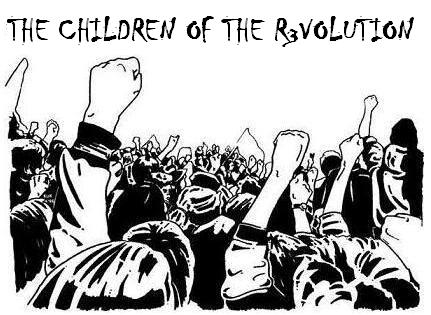BY CINCINNATUS
I
I
 I read this Washington Post article this morning and felt compelled to once again point out the potential for disaster associated with President-Elect Obama’s rather hare-brained tax plan. From what I can glean thusfar, the plan entails a potential tax credit of $1000 for couples and $500 for individuals in the middle-class income bracket, and would be effected via reduced tax withholdings on paychecks from employers. So far so good. I love tax credits, and I love tax cuts even more. According to Obama aides, this tax credit is projected to cost the government $140 billion over the next two years, which isn’t a big deal if the sitting administration’s stated goal is to reduce federal spending overall. But therein lies the problem. An Obama administration has promised to increase federal spending to dizzying new heights in an effort to rebuild the nation’s infrastructure, save education and, my favorite, save and create new jobs. So how will the Obama administration recoup the $140 billion loss these middle-class tax credits will inflict? If you paid attention during the campaign, you should know this one by now. They’re going to drastically increase the tax burden on the wealthiest Americans. This plan is unsustainable and will send our already ailing economy into a tailspin, for two reasons.
I read this Washington Post article this morning and felt compelled to once again point out the potential for disaster associated with President-Elect Obama’s rather hare-brained tax plan. From what I can glean thusfar, the plan entails a potential tax credit of $1000 for couples and $500 for individuals in the middle-class income bracket, and would be effected via reduced tax withholdings on paychecks from employers. So far so good. I love tax credits, and I love tax cuts even more. According to Obama aides, this tax credit is projected to cost the government $140 billion over the next two years, which isn’t a big deal if the sitting administration’s stated goal is to reduce federal spending overall. But therein lies the problem. An Obama administration has promised to increase federal spending to dizzying new heights in an effort to rebuild the nation’s infrastructure, save education and, my favorite, save and create new jobs. So how will the Obama administration recoup the $140 billion loss these middle-class tax credits will inflict? If you paid attention during the campaign, you should know this one by now. They’re going to drastically increase the tax burden on the wealthiest Americans. This plan is unsustainable and will send our already ailing economy into a tailspin, for two reasons.First, In order to squeeze the wealthiest tax bracket Obama will eliminate the Bush tax cuts. Says David Axelrod, "Whether it expires or whether we repeal it a little bit early, we'll determine later, but it's going to go. It has to go." But eliminating those tax cuts won’t be enough. In fact with the middle-class tax credits Obama is promising they may not even break even, and they’ve got a whole slew of new spending programs in mind. So they’ll most likely raise taxes on the wealthiest Americans above and beyond the pre-Bush tax cut levels. To re-hash basic economics, when you saddle the wealthiest Americans (i.e. – business owners) with inordinately high taxes, the inevitable result is that the cost is passed along to the consumer (i.e. – lower- and middle-class) through higher commodity costs, decreased wages, decreased benefits and job losses, all of which we’re already experiencing as a result of the volatile economy. So the middle-class is going to need those meager tax credits to make up for their increased expenses or unemployment. Again, at best we’re breaking even but more than likely we’ll see a recession kicked into a full-blown depression.
The second reason this plan is unsustainable and doomed to failure is Obama’s recycled New Deal promise to create jobs through new government programs. From what I gather Americans will have the opportunity to go to work building wind turbines, repairing or rebuilding bridges, roads, and other general infrastructure. These programs are intended to offset both current job losses and, I suspect, the widespread and inevitable job losses that will result from the Obama tax plan. This jobs program will have the highly undesirable effect of making yet more Americans dependent upon government for their well-being and very survival. But it is without a doubt not a temporary initiative to get us through hard economic times. These programs will become a long-term burden on the American taxpayer. In Axelrod’s chilling words, “we're not only creating work, but we're laying the foundation for the future of our economy.” Unfortunately for President-Elect Obama and Mr. Axelrod, there will come a day when the taxpayers refuse to continue subsidizing an artificial, government-run industry; a day when there are no more bridges or roads to repair or wind turbines to be built. And what will be done then? Will those workers be employed in dismantling those wind turbines? Or will they be laid off?
I
Government largesse will not save us from economic difficulty. Tax credits may be part of the answer, yes, but tax cuts across the board offset by a reduction in government spending is even better. That is a sustainable solution, one that doesn’t create tautological programs that will merely bring us full circle in another four years while worsening the current economy. Of course as a fellow blogger astutely points out, this isn’t as easy as it sounds. It requires debate on some very politically sensitive issues, such as military spending and defense contracting or welfare and Medicaid programs. Politicians have to grow a pair and start thinking of long-term solutions rather than continuously kicking the can down the road.







No comments:
Post a Comment